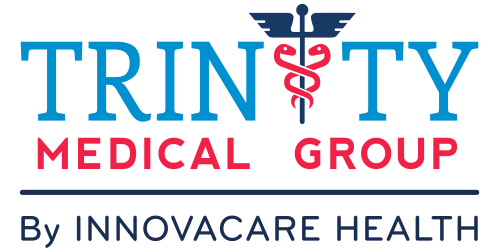Insomnia is another term for sleeplessness. If you are cannot sleep for four to eight continuous hours, it is something to worry about. It is a sign that there is an underlying problem that is causing the insomnia and all the symptoms associated with sleeplessness, such as daytime grogginess, lethargy, fatigue, inability to focus and concentrate, moodiness and depression.
If you want to learn more about how CPAP therapy can help your insomnia, call and make an appointment with Trinity Medical Group today.
Insomnia And Sleep Apnea
Most sleep studies reveal that insomnia is often associated with sleep apnea, which is condition where you stop breathing for a short duration as your airways get blocked or closed. This stoppage of breathing occurs several times during the night, leading to a range of sleep apnea symptoms, including:
• Snoring
• Gasping
• Oxygen deprivation
• Intermittent sleep
These symptoms contribute to insomnia over a period of time. One sleep study found that if a person suffers from insomnia for extended periods of time, it can lead to the brain shrinking. Insomnia can adversely affect blood pressure, BMI, heart, kidneys, and blood sugar levels. Hence, it makes sense to treat insomnia.
CPAP Machine To The Rescue
Doctors recommend using a CPAP machine to treat insomnia. CPAP stands for Continuous Positive Airway Pressure. The machine forces oxygen through the blocked or closed nasal passages so that you breathe continuously and do not wake up gasping or choking for breath. The machine also maintains a steady oxygen pressure that prevents the tissues in your throat from collapsing and as a result, you do not snore.
A CPAP device is not a cure for insomnia, but it can reduce the risk of elevated blood pressure, heart attack and abnormal blood sugar levels. The device comprises a machine with a pump that controls the flow and pressure of air, a tube to transport air from the machine, and a mask that you don over your mouth and nose.
Using a CPAP machine has many positive effects. It not only treats your insomnia, it minimizes daytime sleepiness, reduces symptoms of depression that many people with obstructive sleep apnea suffer from, and also reduces high blood pressure.
The Bottom Line
If your insomnia is caused by obstructive sleep apnea, you will find that a CPAP machine is the right treatment. It has proven to help with insomnia as it ensures your respiratory function get restored to normal levels. It is an instantaneous treatment that will provide results from the very first use. So, speak to your doctor today to learn more about how to treat sleep apnea-induced sleeplessness with CPAP therapy.

 Call Lakeland
Call Lakeland
